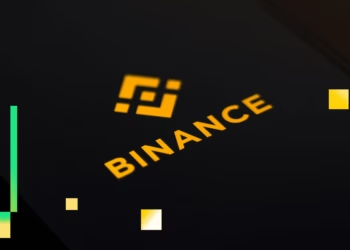In a groundbreaking move for crypto adoption, Dubai’s Department of Finance (DOF) has signed a Memorandum of Understanding (MoU) with Crypto.com to enable Bitcoin and cryptocurrency payments for government service fees. Announced during the Dubai Fintech Summit on May 12, this initiative marks a major milestone for digital assets in the Middle East and could serve as a blueprint for other nations exploring crypto integration.
With this partnership, Dubai becomes one of the first governments globally to integrate crypto into public sector payments—a shift that underscores its long-standing ambition to lead the world in Web3, blockchain innovation, and digital finance.
Let’s break down what this means for users, the global crypto industry, and the broader vision behind Dubai’s cashless strategy.
Dubai’s Crypto Strategy Just Went Public
For years, Dubai has positioned itself as a hub for blockchain development, Web3 startups, and crypto regulation. Now, this MoU with Crypto.com transitions those ambitions into direct action, allowing residents and businesses to use Bitcoin and other cryptocurrencies to pay for government services.
While the initial rollout will focus on select services, officials confirmed that the infrastructure will support scalability—opening the door for broader crypto-based payments across the UAE’s public sector.
Dubai Finance (DOF) has signed a Memorandum of Understanding (MoU) with https://t.co/HZnta4pnXb, a globally recognised cryptocurrency trading platform, to enable the payment of government service fees using cryptocurrencies—an initiative that marks a significant step in advancing… pic.twitter.com/iOh7kOz50p
— Dubai Media Office (@DXBMediaOffice) May 12, 2025
According to the Dubai Media Office, this is part of a broader smart city strategy aimed at accelerating financial innovation and reinforcing the city’s reputation as a leader in digital economy transformation.
Who’s Involved: Crypto.com + Dubai Department of Finance
The MoU was signed by Ahmad Al Meheiri, Director of Dubai’s Department of Finance, and Mohammad Ali Rashed Lootah, CEO of Dubai Chambers, alongside Crypto.com’s executive team.
Crypto.com, already a licensed exchange in Dubai, will provide the technical infrastructure and payment rails, enabling seamless crypto-to-dirham conversion where needed. This ensures that government agencies receive stable fiat settlements while users can still pay with crypto.
The partnership will also include compliance and identity frameworks in line with UAE regulations, maintaining AML and KYC protections throughout the process.
Why This Matters for Crypto Adoption Globally
Dubai’s move isn’t just symbolic — it’s a real-world use case of Bitcoin and crypto in daily civic life. It provides a counter-narrative to regulatory uncertainty in other jurisdictions and highlights how governments can collaborate with Web3 platforms without compromising on security or oversight.
This could set a precedent for other cities and states—especially in emerging markets—to integrate digital assets into their tax, licensing, and administrative systems.
Moreover, the announcement aligns with rising institutional interest and global efforts to establish crypto-friendly frameworks in public finance.
Final Thoughts – A Real Utility Win for Bitcoin
As the crypto industry matures, real-world utility has become a crucial benchmark for long-term success. Dubai’s decision to accept Bitcoin and other cryptocurrencies for public services is more than a policy update — it’s a statement of intent.In a year where adoption narratives are being tested, this move reinforces the role of crypto as not just an investment tool, but as a functional, usable form of money. If successful, Dubai’s crypto integration could inspire similar initiatives worldwide, reshaping how governments and citizens interact in the digital age.










